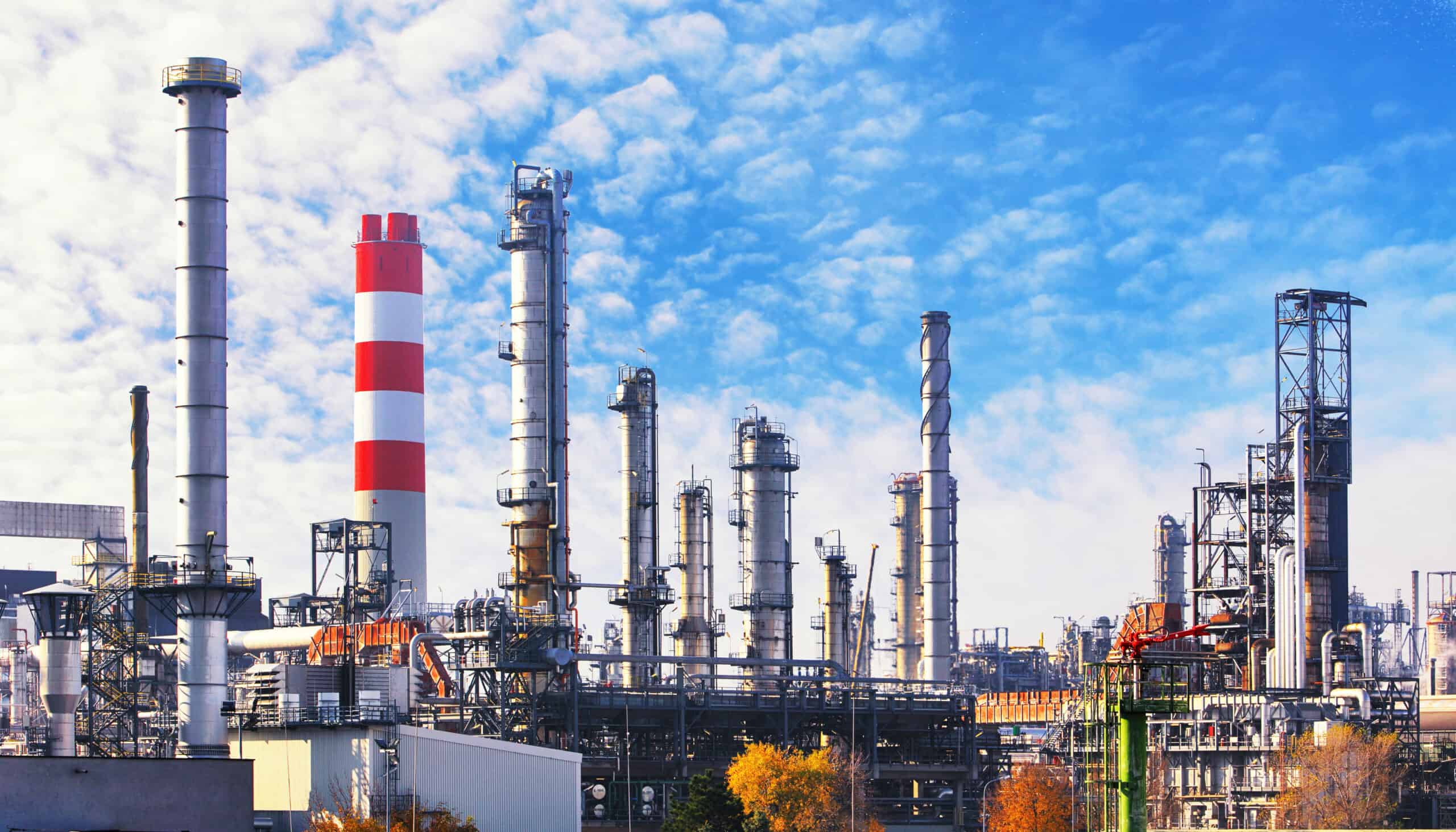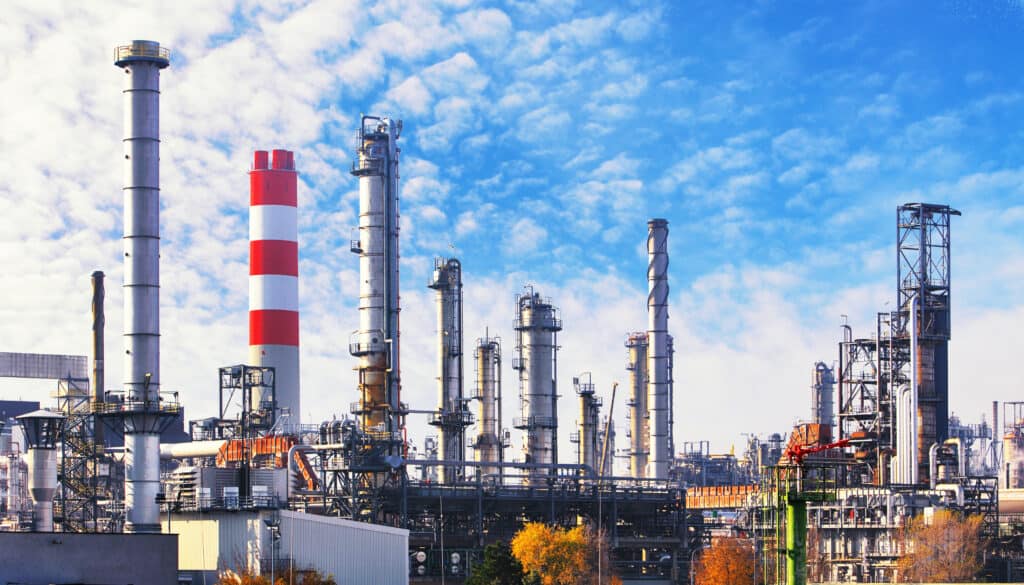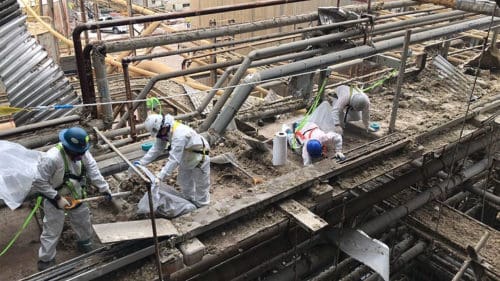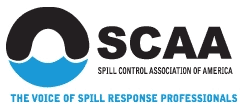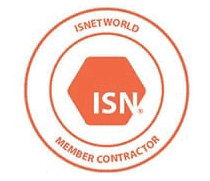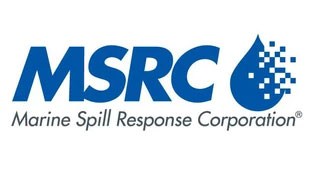At Hull’s Environmental Services, we excel in providing quality solutions that meet our clients’ distinct environmental and industrial requirements. Our core values revolve around a commitment to environmental sustainability and regulatory compliance. We focus on putting customers first and aim to exceed expectations in every interaction.
Types of Hazardous Chemicals and Petrochemicals
The following hazardous products pose risks to human health, safety, and the environment:
Carcinogenic Chemicals
Carcinogenic chemicals are substances known to potentially cause cancer in humans. Examples include benzene, formaldehyde, asbestos, and polychlorinated biphenyls. Prolonged or repeated exposure to these materials, often in industrial or occupational settings, can increase the risk of developing various types of cancer.
Corrosive Substances
Corrosive substances can cause severe damage to living tissue or materials upon contact, often through chemical reactions that degrade or disintegrate them. These substances include sulfuric acid, hydrochloric acid, sodium hydroxide, and nitric acid. They are highly reactive and can cause burns, skin and eye damage, and respiratory irritation when exposed to the human body.
Explosives and Reactive Chemicals
Reactive chemicals are extremely hazardous substances that quickly release massive amounts of energy, often resulting in explosions. These materials are extensively used in the mining, construction, and military industries, but their handling requires strict safety precautions. Some of the most commonly used explosives include Trinitrotoluene (TNT), nitroglycerin, peroxides, and azides.
Flammable Liquids
Flammable liquids can easily ignite and burn at or below room temperature when exposed to a heat source. They are a significant fire hazard due to their low ignition point and ability to rapidly spread flames. Examples of these liquids include gasoline, diesel fuel, methanol, and acetone. In addition, they require specialized storage containers to minimize the risk of fires and explosions.
Highly Flammable Gases
Highly flammable gases ignite and burn easily when exposed to a heat source or open flame. They are often used in various industrial processes and fuel applications. Due to their extreme flammability, proper storage, handling, and transportation protocols are critical to prevent accidents and fires. Examples of these substances include hydrogen, propane, butane, and ethylene.
Toxic Gases
When inhaled or absorbed, toxic gases can be harmful or lethal to living organisms. They are often colorless and odorless, making their identification and detection challenging without specialized equipment. Exposure to these substances can result in various adverse health effects, such as respiratory irritation, chemical burns, and organ damage. Common toxic gases in the industrial environment include hydrogen sulfide, chlorine, ammonia, and sulfur dioxide.
Volatile Organic Compounds (VOCs)
VOCs are a chemical group that readily evaporates into the air at room temperature. They are released from various sources, including industrial processes and vehicle emissions. While they are essential in different applications, they contribute to air pollution and have negative health effects in high concentrations. Examples of VOCs include toluene, xylene, ethyl benzene, and styrene.
The Environmental Impacts of Chemicals and Petrochemicals
The chemical and petrochemical industries have significant environmental impacts due to their reliance on various substances and processes. Chemical manufacturing generates hazardous waste, including toxic chemicals and byproducts. Improper waste management practices can also contaminate soil and water, posing risks to ecosystems and human health. Mitigating these impacts requires stringent regulations and guidelines to govern waste disposal and treatment.
Furthermore, extracting raw materials for these industries can lead to ecological disruption and habitat destruction. Oil spills and pipeline leaks are examples of catastrophic environmental accidents associated with the transportation and extraction of these resources. Addressing these issues necessitates ongoing research and investment in sustainable practices and the development of cleaner technologies.
Chemical and Petrochemical Waste Treatment Methods
The choice of waste treatment method depends on the specific characteristics of the waste, regulatory requirements, environmental considerations, and the desired outcome. Here are some of the most common waste treatment methods:
- Biological treatment: Some organic chemical wastes can be treated using bioremediation or composting, where microorganisms break down the compounds into non-toxic substances.
- Chemical neutralization: Acidic or alkaline hazardous waste can be neutralized by adding chemicals to adjust its pH to a safe and non-reactive level.
- Chemical oxidation: Some chemical waste can be treated through oxidation processes using strong oxidizing agents to break down compounds into less harmful forms.
- Incineration: This process involves burning organic or flammable waste at high temperatures to convert it into less toxic substances and reduce its volume.
- Landfilling: In cases where other treatment methods are not feasible, hazardous waste may be disposed of in secure, engineered landfills.
- Precipitation: This method adds chemicals to the waste to form solid precipitates, which can then be separated from the liquid phase.
- Reverse osmosis: This uses a semipermeable membrane to separate water from dissolved salts and other contaminants, making it useful for desalination and purification.
- Solidification or stabilization: Hazardous waste is mixed with solidifying agents to reduce its mobility for safe disposal.
The Hull’s Environmental Services Advantage
Hull’s Environmental Services is a trusted partner for those facing unique environmental compliance and safety challenges within the industry! Our extensive experience in the chemical and petrochemical industry enables us to assist clients in operating while meeting all regulatory requirements. Here are the services we offer :

Preventative Maintenance
Hull’s Environmental Services places a high premium on preventing disasters and minimizing downtime. Our preventative maintenance services are designed to keep equipment functioning at peak efficiency. By proactively addressing issues, reducing leaks, and mitigating problems, we help clients operate smoothly and efficiently. This ultimately can help prevent costly breakdowns, extend the lifetime of equipment and machines, and avert time-consuming incidents.

Waste Management
We offer comprehensive waste management services tailored to each facility’s specific needs. Our team optimizes the process of proper disposal, documentation, and compliance, whether the goal is to handle hazardous wastes or recycle byproducts. In addition, our approach ensures that clients meet regulatory standards while efficiently managing hazardous and non-hazardous waste streams in compliance with the Resource Conservation and Recovery Act (RCRA).

Environmental Compliance
Staying compliant with evolving environmental regulations can take time and effort. We keep a vigilant eye on policy changes and offer guidance to maintain compliance. Moreover, we deliver innovative solutions to help clients meet their environmental responsibilities. This strategy guarantees their compliance with the law.

Emergency Response
Hull’s Environmental Services is well-prepared, with OSHA 40-Hour HAZWOPER trained emergency response teams available 24/7, every day of the year. Our expert teams can immediately contain the situation, mitigate risks, and remediate sites in case of accidents like spills or hazards. This rapid response helps protect the community, their properties, and the environment.
Partner With Hull’s Environmental Services for Waste Management Expertise
At Hull’s Environmental Services, we are dedicated to ensuring your facility’s safe, sustainable, and responsible operation! Regulatory compliance is not just a requirement but a fundamental aspect of our service. We can also navigate the landscape of ever-evolving environmental and safety regulations, ensuring that your operations align with legal standards and best practices.
Contact us today or request a quote to get started!

